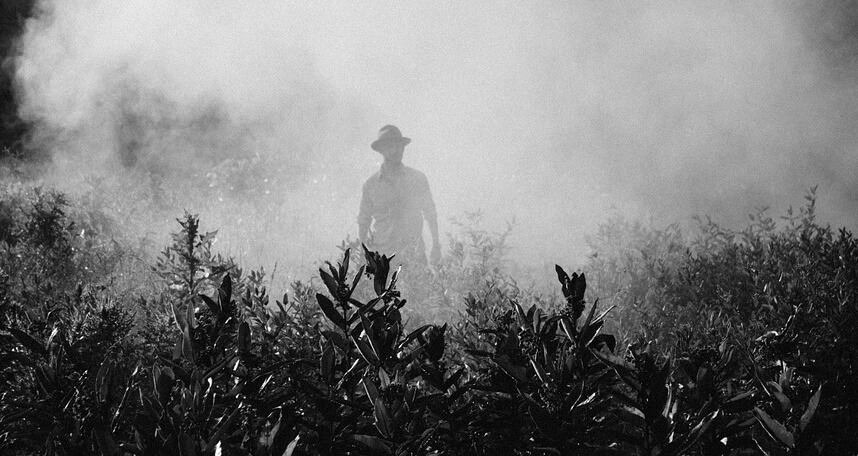Sustainable food production is a model of farming which aims at producing plant and animal products in ways that are friendly to the environment, human welfare, animal welfare as well as public health. For decades, people have plowed the land in all sorts of ways and rendered it unproductive in the end, often moving on to another piece of land after using harmful farming methods such as burning crops. With sustainable food production, youth get to exploit resources optimally while being kind to the environment to ensure that there is something to be gained from it for the generations to come.
Chemical pollution – Crop farming through the use of fertilizers is a common practice used to yield a lot of produce. The chemicals used on plants have long-term effects on the soil in that even after the crops get harvested, the chemical remnants continue acting on the micro-organisms in the ground, making the land unproductive. Soil loses its compaction abilities and becomes degraded overall. Some farmers use such chemicals on crops which are for animal feeds, and this poses a significant risk to the animals that get to feed on the plants as well as the humans who later feed on the animals. The whole food chain gets affected by the chemicals.
Mono-cropping – One of the farming methods that lead to gradual soil degradation is mono-cropping. This farming method involves the cultivation of only one type of crop on a piece of land for a prolonged period. This kind of farming reduces the genetic diversity of the plants grown on the farm which makes them less evolved to other environmental factors. The lack of diversity also makes them more susceptible to diseases as compared to plants grown using rotation farming. Farmers should prevent their crops from getting destroyed by pests by using rotation farming.
Use of fossil fuels – The using of synthetic fertilizers on the soil as well as the crops leads to the fast depletion of fossil fuels which are essential in the economic development of the country. Sustainable food production focuses on using little or no fertilizers on the soil, practicing multi-cropping as well as crop rotation and the use of high-quality seeds to ensure that the products of the farm are of good quality and that the environment gets preserved.
Promoting personal health – People are becoming more health conscious over time due to the increasing rate of patients suffering from lifestyle diseases. The food produced in sustainable food production can help you achieve the health standards that you have set.

Pesticides – The food grown in industries is subjected to treatment with various kinds of chemicals to ensure that the crop does not get affected by pests. The problem with these types of procedures though, is that the chemicals remain on the food long after it gets harvested. As such, the crops will still contain chemicals by the time they get to the grocery store which exposes you to various health problems. Industries also process the foods once they are out of the farm. They do so by adding additives to make the products taste and look better. They also put in preservatives to make the foods last longer, enabling you to stock up enough food for a summer. While such measures may seem like a gift at the moment, they are bound to have detrimental effects on your health in future. The piling up of such chemicals in your system predisposes you to diseases and makes your immune system weak. The toxins in such chemicals can lead to the development of disorders such as infertility, congenital disabilities, cancer and they can even lead to the failure of your nervous system.
Stressed animals – Some farmers are more about making money than they are about the quality of life that they provide to the animals in their care. As such, issues of overcrowding animals in confined spaces, giving them low-quality feeds and harassment is common on some farms. This kind of treatment increases the stress levels of the animals, leading to the production of inferior quality animal produce. Animals confined in small places are also at a risk of catching diseases at a fast rate, and this affects their productivity levels.

Refrigeration – When food gets released from the industry, it gets transported in refrigerated conditions to keep it from going bad. This process reduces the nutritional content that you get from the food in the end. Sustainable food production aims at giving animals care of high-quality which enables them to produce high-quality products that are nutritional. Another principle of sustainable food production is that the farm produce gets to the end consumer in a fresh state. You get to have unprocessed, high-quality and raw food.
Promoting public health – Once you start buying sustainably produced food, you reduce the number of harmful farming practices in the country.
Diseases – The pesticides used in most agricultural farms are very toxic, and once they get into the air, land, and water around them, they can travel to far off places causing significant health problems. The Gulf of Mexico currently faces such a challenge. The antibiotics used in the treatment of livestock have somehow found their way into the water bodies, and this has created a strain of bacteria that is resistant to antibiotics, posing a problem in the public health sector. By participating in sustainable food production or supporting farmers who do, you get to contribute towards the conservation of our environment. The future of our generations depends on the decisions that we make today. Eat towards a healthier life!
